From Students to Community Leaders
Social Change Beyond the Classroom
As part of their leadership education and in preparation for graduation, Akilah students work to create sustainable social change in their communities. Now students are finalizing their social change projects, after identifying challenges in their communities, coming up with solutions, and implementing them in close collaboration with community members. One of this year’s groups is supporting women to create sustainable means of income for themselves by producing and selling their own soaps and lotions.
Although Kininya is just a 15 minute drive from Akilah’s campus, it is an entirely different world from the modern, bustling city of Kigali. Employment opportunities are scarce, living standards low, and women, in particular, struggle to support their families. For most women in Kininya, their best option is to sell fruit or other petty items on the street-side. It’s an unstable — and illegal — source of income and leaves women financially dependent on their husbands and family members. In an attempt to expand these women’s sources of income, six Akilah students teamed up to work with 50 women in Kininya to start a soap and lotion production project. For four weeks students taught women how to produce body lotion and soap for household cleaning and took them through the basics of business management, equipping them to run the project as a business after the four weeks were over.
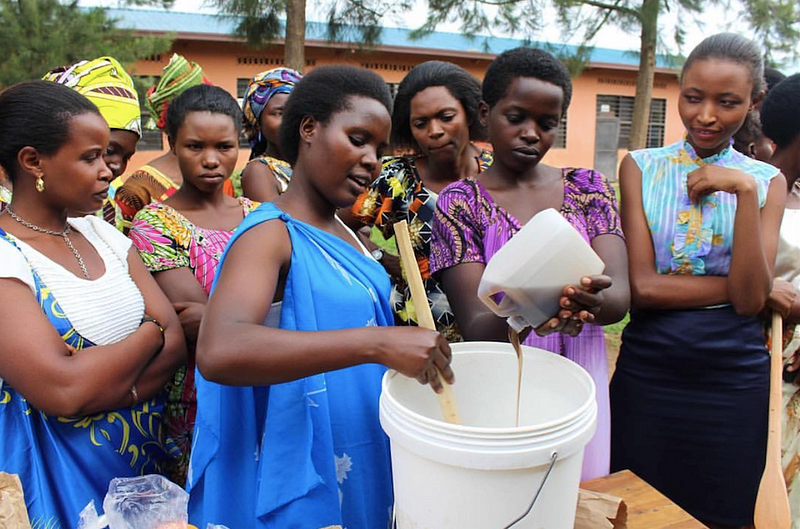
“We wanted to create a project to help reduce poverty in a sustainable way. We decided to teach these women a tangible skill that can help them have an income and be independent. Most of them don’t have education or jobs, so they were excited to learn something new. Some of the women were sharing stories, and it was clear that they have really been struggling. Now they believe they can make a change through a legitimate business.” -Sakina Usengimana ‘16
The project was brought to life in partnership with Rwanda Ministry Network, a local organization working to support 3000 female street vendors by providing them other forms of employment and livelihoods opportunities. At the end of Akilah’s project, the goal is for the 50 women participating to be able to launch their soap business — and hopefully to spread the project to more villages and create income avenues for even more women.
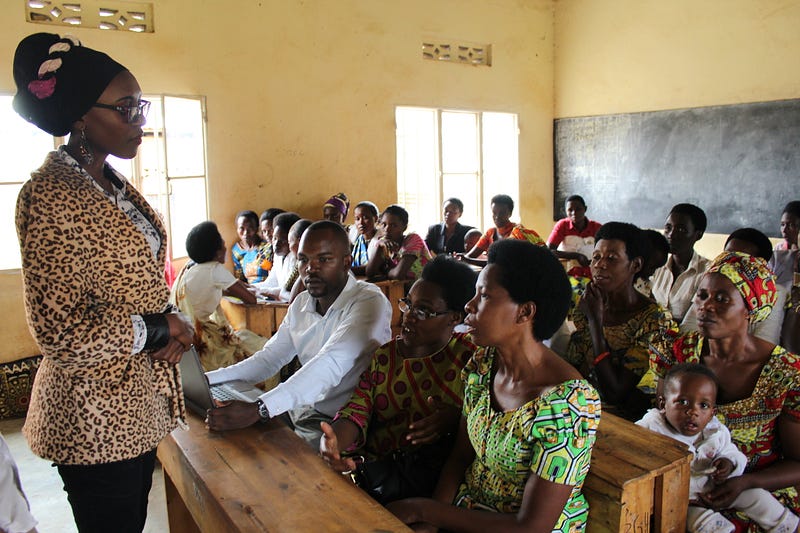
On the last day of the project, the women from Kininya and the Akilah students have come together for a final round of soap production and a presentation to the rest of the Akilah community, showing that the women are ready to take on the project themselves. Just four weeks ago, none of the women were familiar with soap production, but after intensive training, they have gained enough skills and confidence to take charge of their own production. They have formed a cooperative called Umucyu, the Kinyarwanda word for ‘light,’ and with support from their local leaders, Akilah students and the Rwandan Ministry Network, they hope to expand their production and start selling their soap. First to neighbors and friends, and in time to restaurants and hospitals.
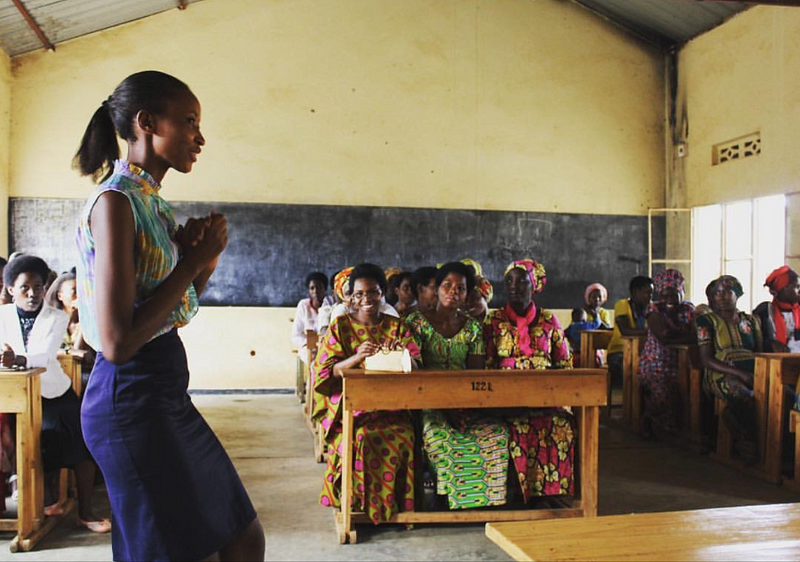
Mushimimana Chantal, a member of the group, says the project has brought tremendous change for them already. “One of the most important things we take with us is that now we love to work. I want to do business now, and I’m excited about it. We’re no longer afraid of the competition. We have been taught business skills, and we know to start small and grow big. We have tangible skills that we can turn into a business. We don’t have to buy soap anymore — we can make our own and even sell it to others. We can save money and help our families.”
There is a new sense of optimism among the women in Kininya, thanks to their new soap business. And that is the first important step, according to Margareth Mukansigaye, the founder of Rwanda Ministry Networks.
“We work with 3000 women to create jobs for themselves. We work to give them hope. And the first thing that needs to happen is a mindset change — to gain confidence. We’re so happy to work with Akilah who shares our goal of empowering women, and I promise we will not stop here. We will continue to train other communities in the skills the Akilah students brought, create more cooperatives, and support even more women to get off the streets. They can use and sell their own products, and that is a huge change.”
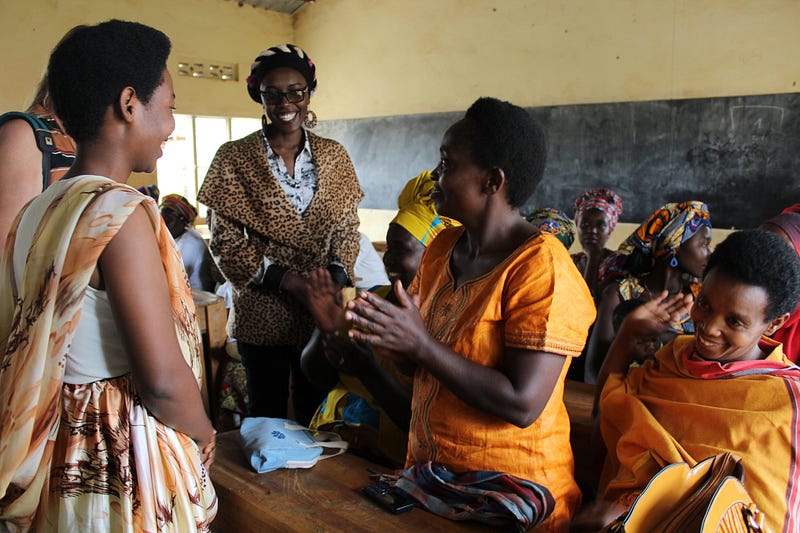
Sustainable Impact
All students at Akilah participate in a social change project before graduating as part of their leadership program. According to Jacqueline Semakula, Akilah’s Leadership and Social Change instructor, it is an important aspect of their time at Akilah to experience the change they can create in their communities without very many resources at hand.
“After five weeks in the classroom, we send the girls out to local communities to identify challenges and work out solutions in collaboration with local leaders and the people they are trying to reach. It’s important for us to emphasize that this is not about charity. It is about creating sustainable impact and giving back to their communities using the skills and knowledge they picked up in the classroom.”
And after seeing the impact this project has had on the women in Kininya, Jaqueline is happy with the impact her students managed to accomplish.
“I’m proud of the girls and what they’ve managed to do. Their confidence makes them able to find a community and support it to create change with very limited resources. It shows me that the girls are independent and ready to stand on their own feet now that they’re about to graduate. They are creating change.”
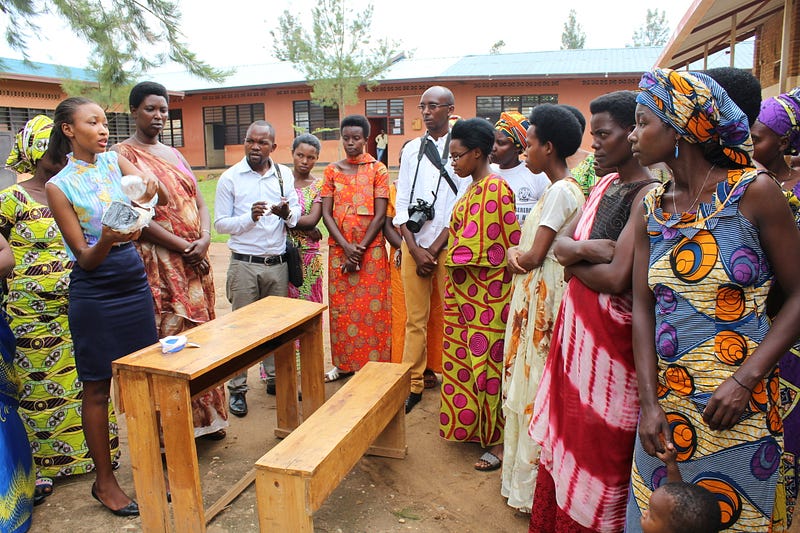
For Sakina and her team members, seeing the results has been the best part.
“Making a change doesn’t require as much as you think. Find the root cause, find a solution using the skills and knowledge you already have, and pass it on to others. It can help people to change their lives. When I implement my skills and teach someone else it makes me feel like I have contributed to something bigger. Sometimes you think you are making a small change but it turns out to be a really big thing for someone else. It makes me feel proud.”
